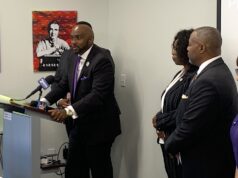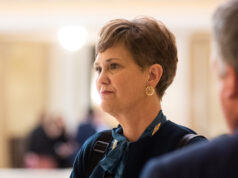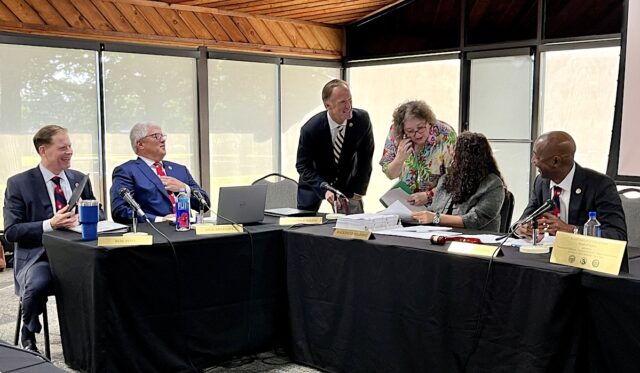

ARDMORE — For the fourth year in a row, the University of Oklahoma Board of Regents approved a tuition increase for undergraduate, graduate and medical students today. The action coincides with a merit-based compensation boost for some OU employees costing about $15 million, and regents said recent tuition hikes have corresponded with increases in student-aid access and need-based scholarships.
“We are proud of some of the things that we are doing that are reducing costs for students,” OU President Joe Harroz said during the meeting. “Over the last five years, there has been a 38 percent increase in need-based aid for our students. That is important and necessary. There has been a 20 percent increase in scholarships. That is important and necessary. And we have cut, over the last six years, $140 million in operating costs — Norman campus alone. Those are all good measures, but they are not enough to avoid what are hopefully seen — although certainly impactful to individuals — as a 3 percent tuition and fee increase.”
Some small fees were also increased for the 2024-2025 academic year, and some tracts within OU’s medical school will see their tuition increase closer to 4 or 5 percent. The OU increases follow similar hikes last year, which occurred despite a bump in state appropriations.
Friday’s OU Board of Regents vote — taken one week after Oklahoma State University’s regents held tuition flat for the fifth time in six years — came the morning after a dinner gathering with Gov. Kevin Stitt and 10 days before a series of celebratory events that will punctuate OU’s official move to the Southeastern Conference on July 1.
“We take a look at it each year,” Chairman Eric Stevenson said of OU’s tuition rates after Friday’s meeting. “What I love about this board is how hard they dig to try to find expense reductions to make sure there are no other ways (to avoid tuition increases). We are monitoring what’s our overall value proposition, and we feel it is at a good place. You saw some of the enrollment numbers that just reinforce that.
“You have to pay for great faculty and staff.”
Regents also took a series of votes about university policies Friday, including a restructuring of OU alcohol policies and the transition of sexual misconduct, discrimination and harassment policies — dubbed “institutional equity” — from regent responsibility to “presidential level” management.
Functionally, the change means the OU Board of Regents will have no approval or review authority regarding OU’s policies on sexual misconduct, discrimination and harassment. The item received no explanation or discussion during Friday’s meeting.
“Simply, that’s a better place for it at the presidential level,” Stevenson said after adjournment.
Stevenson, who became chairman of the governing body for OU, Cameron University and Rogers State University this year, led the meeting portions of Thursday and Friday’s annual board retreat at a wooded conference center on the east edge of Ardmore.
On Thursday, regents heard a lengthy presentation about governance best practices from Thomas Meredith, a consultant with the Association of Governing Boards for Colleges and Universities. Meredith concluded his remarks by running through a series of “keywords” and offering blunt reminders.
“Students? Just put them first — that’s all I can tell you — in everything you are doing,” Meredith said. “Transparency? We talked about that. Just be as open as you possibly can be. Ethics? If it doesn’t feel right, don’t do it. Trust? Once lost, possibly never regained. You just can’t do anything to lose the trust. Accountability? Everyone is accountable. Everyone is accountable, no matter what role you have, no matter whatever. Even the regents are accountable. They’re accountable to the public. They’re accountable to all the constituents on the campus to do the right thing.”
Asked about the board’s decision to relinquish its policy powers on topics like “sexual misconduct” and “prevention of alcohol abuse” in light of Meredith’s remarks on accountability, Stevenson said the board’s role is governance of the president.
“That’s 100 percent consistent,” Stevenson said. “What [Meredith] also said is that the most important thing that the board does is to manage and work with the president. So we work with him on objectives, we work with him on [key performance indicators], and we hold him accountable for those decisions that he and his staff make.”
Harroz, who immediately left the Noble Research Institute Conference Center when Friday’s meeting concluded, will now be responsible for reviewing, maintaining and updating OU’s policies on student alcohol use, university employee substance use and sexual misconduct, discrimination and harassment.
Asked whether Friday’s action meant Harroz and OU administrators will be reviewing and revising any of those policies soon, a spokesman said the process has been ongoing.
“The university has been reviewing and assessing its policy processes and making changes as needed, which includes reclassifying the Student Alcohol Policy,” Zack Higbee, an OU spokesman, said in a statement. “Most other institutions do not include detailed non-discrimination policies at the board level, and this action brings OU in line with similarly situated institutions. OU continues to engage in a thorough review of the Title IX regulations.”
Oklahoma State University tuition to remain flat
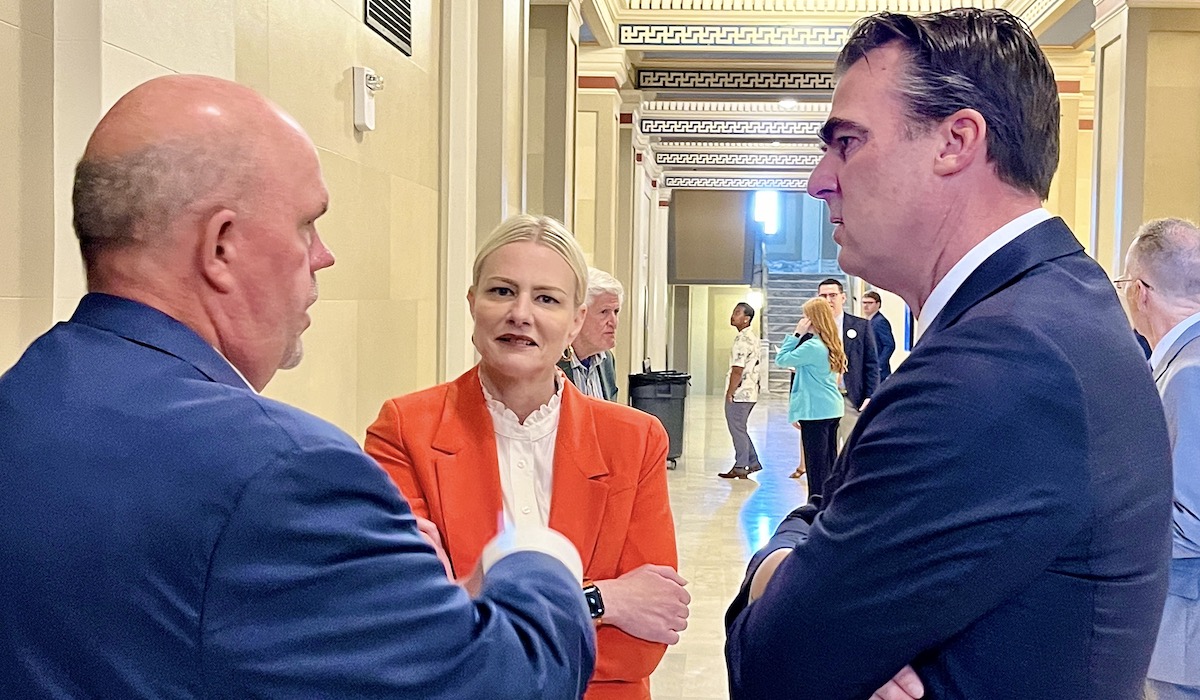
For the third straight year and the fifth out of the last six, the Board of Regents for the Oklahoma Agricultural and Mechanical Colleges voted to keep tuition at Oklahoma State University flat. Colloquially called the OSU Board of Regents, the body met in Tulsa last week.
“As regents overseeing Oklahoma State University, we are pleased to maintain our current tuition and mandatory fees for the third consecutive year without an increase,” Chairman Joe Hall said in a statement. “This decision reflects the commitment of OSU leadership and the regents to responsible fiscal management. As a land-grant university, our primary mission is to offer an affordable, accessible, and high-quality education so as many students as possible can earn a college degree. By prioritizing affordability, we can play a significant role in advancing our state by making it possible for many individuals to obtain a college degree and contribute to the betterment of society.”
OSU board members and administrators are awaiting resolution of a peculiar political situation involving Stitt’s latest appointment decision.
Meanwhile, OSU President Kayse Shrum issued a statement praising the OSU Board of Regents’ decision to keep tuition and mandatory fees flat for the 2024-2025 academic year.
“The decision reflects our shared commitment to affordability through prudent management of our financial resources,” Shrum said. “The OSU community’s dedication to solid financial management allows us to fulfill our land grant mission to provide access for as many students as possible to a high-quality college education.”
Stevenson discusses making OU ‘accessible’ for all
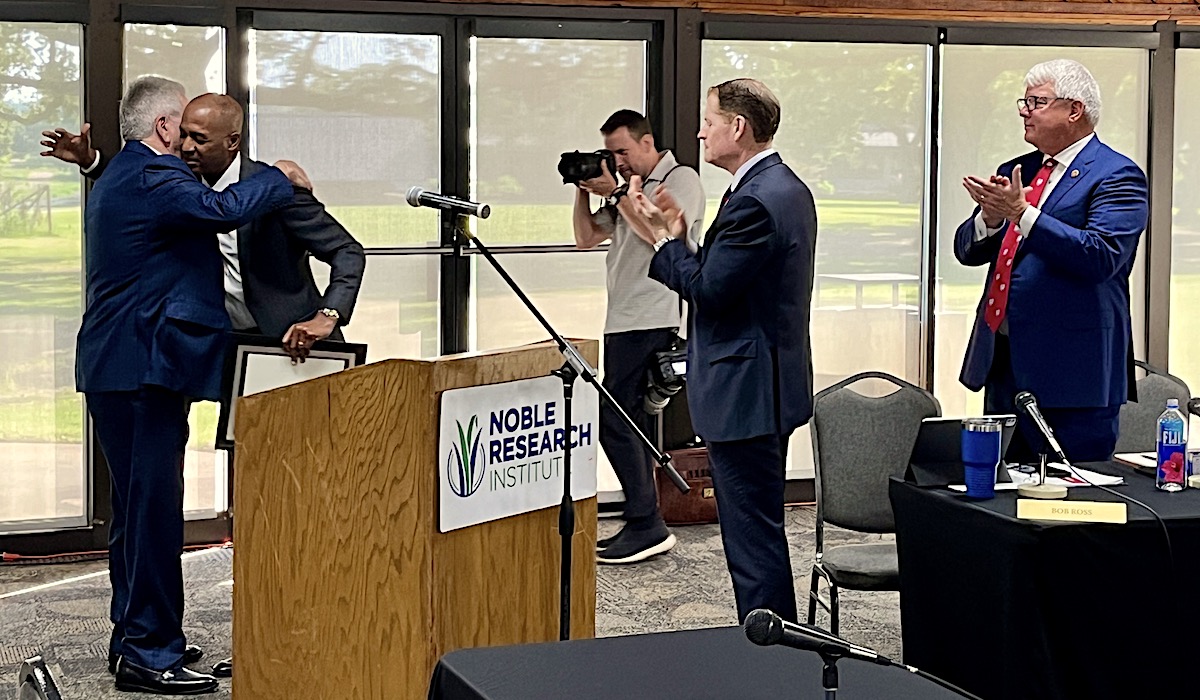
A graduate of Oklahoma State University who grew up in Norman and also roots for OU at sporting events, Stitt has pushed three primary concepts at the state’s two research institutions since becoming governor: avoid obligatory tuition increases and keep the cost of college affordable; focus on increasing enrollment in key employment sectors like nursing and engineering; and avoid race-based preferences and “diversity, equity and inclusion” programs that include mandatory participation or preferential treatment.
On Thursday night, Stitt ventured to the east edge of Ardmore where the OU regents were holding their annual treat. He arrived just after 7 p.m., mingling with the 35 to 40 people in attendance and staying for a steak dinner and casual conversation. He departed about 90 minutes later, leaving regents and university administrators to bond over pool and other games.
“It was a nice dinner,” Stevenson said Friday. “It was a lot of fun.”
Stitt’s office did not respond to a request for comment from the governor regarding OU’s tuition decisions, but he has been vocal in recent months about his executive order requiring a review and report about all DEI programs at state entities by May 31.
Released in December, the convoluted order spurred significant confusion about what compliance looked like. At first, Harroz announced OU would eliminate its DEI programs. Later, some efforts were simply rebranded. Eventually, word spread that a women’s leadership program hosted by OU’s Carl Albert Center had been deemed impermissible under the university’s executive order implementation guidance. The program’s May 17-21 conference occurred ahead of the order’s May 31 compliance deadline, but the ultimate fate of the women’s leadership program remains unclear while Stitt’s order is in effect.
Asked how he views Stitt’s executive order and remarks criticizing DEI efforts, Stevenson — the board’s first Black chairman since 1998 — said the regents are focused on “making OU as accessible for everyone in the state as we possibly can.”
“That includes all aspects of making it accessible, whether that’s housing, whether that’s any accommodation that we need to make,” Stevenson said. “If they’re qualified to get here, we want them here and to make it affordable and keep it affordable.”
Stitt’s first OU Board of Regents appointee in 2019, Stevenson said he is most proud of last year’s freshman class being comprised of 26 percent “first-generation” students.
“I think that really speaks to how inclusive, how inviting and how welcoming we are,” Stevenson said. “We also saw our first-year retention rates increase. That just again speaks to — we are doing our job. The last four years each class has been more diverse than the class before. So it just feels like, regardless of what you call it, we are a welcoming place. We are achieving our strategic plan, and I could not be more proud of how that is going.”
Asked if he has discussed Stitt’s criticisms of diversity, equity and inclusion efforts with the governor, Stevenson — a Wagoner native who works as an insurance executive in Ohio — said he focuses on his roots from “small-town Oklahoma.”
“My passion is how do we, one, continue first gen, and then how do we expand for rural Oklahoma?” Stevenson said. “How do we get more kids from all over this state, not just Oklahoma City and Tulsa and Muskogee? How do we get to rural Oklahoma? I think as we do more and more of that, we are going to be more and more successful. That’s how I think about access and being inclusive.”
Asked what he would say to people of color who are concerned about Stitt’s executive order, Stevenson advised people “to look at the results.”
“When I get those questions, I encourage people to look at the results. Look at what’s happening,” Stevenson said. “Look who is being admitted, look who is succeeding, look at who is graduating, and look at what kind of jobs they’re getting, and then evaluate us on that. Because those numbers all say we are doing a great job across all metrics.”
Last month, three white students sued the university alleging discrimination in the university’s application of financial aid, saying it disproportionately benefits minority student populations even when accounting for first-generation and familial income measurements.
Speaking about Thursday’s dinner with the governor and recent investments from the Oklahoma Legislature for a pair of OU capital improvement projects for engineering and science programs, Stevenson said the board feels positive about its direction.
“We’re a state institution,” he said. “Part of what Dr. Meredith talked about was that we make sure we are aligned to try to achieve the goals of the state, and that’s what we want to do.”
Regents also formalized the retirements of Rogers State University Larry Rice and Cameron University John McArthur on Friday, affirming Mark Rasor as Rice’s interim successor former Lt. Jari Askins as the interim president of Cameron. Both universities will conduct national searches for their next permanent presidents.










